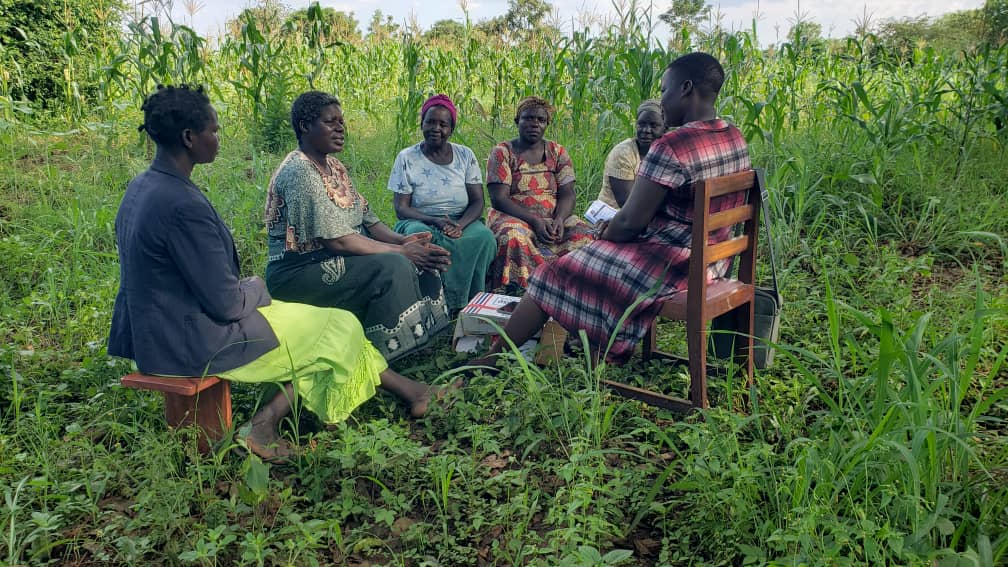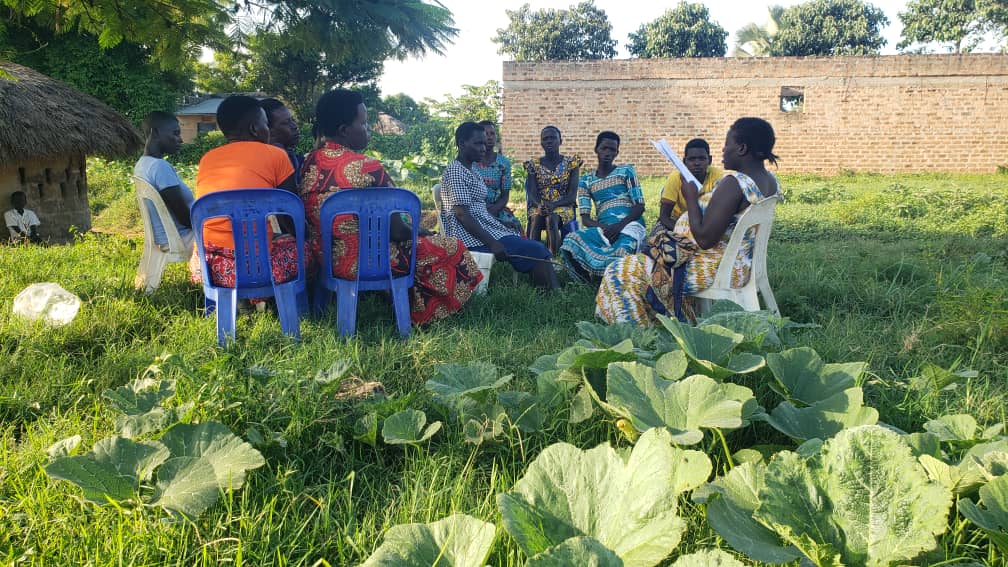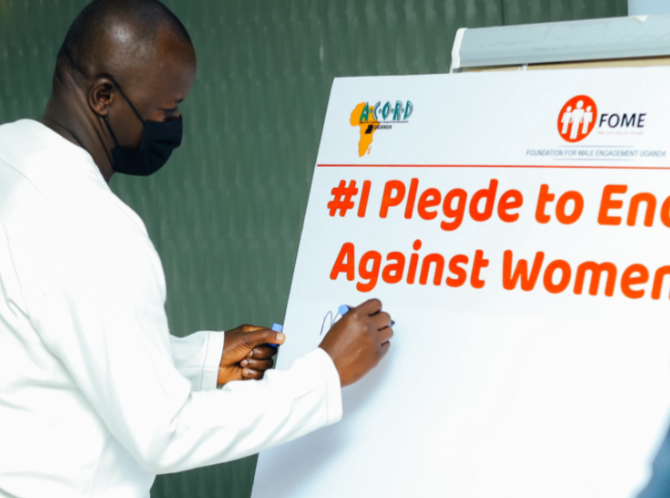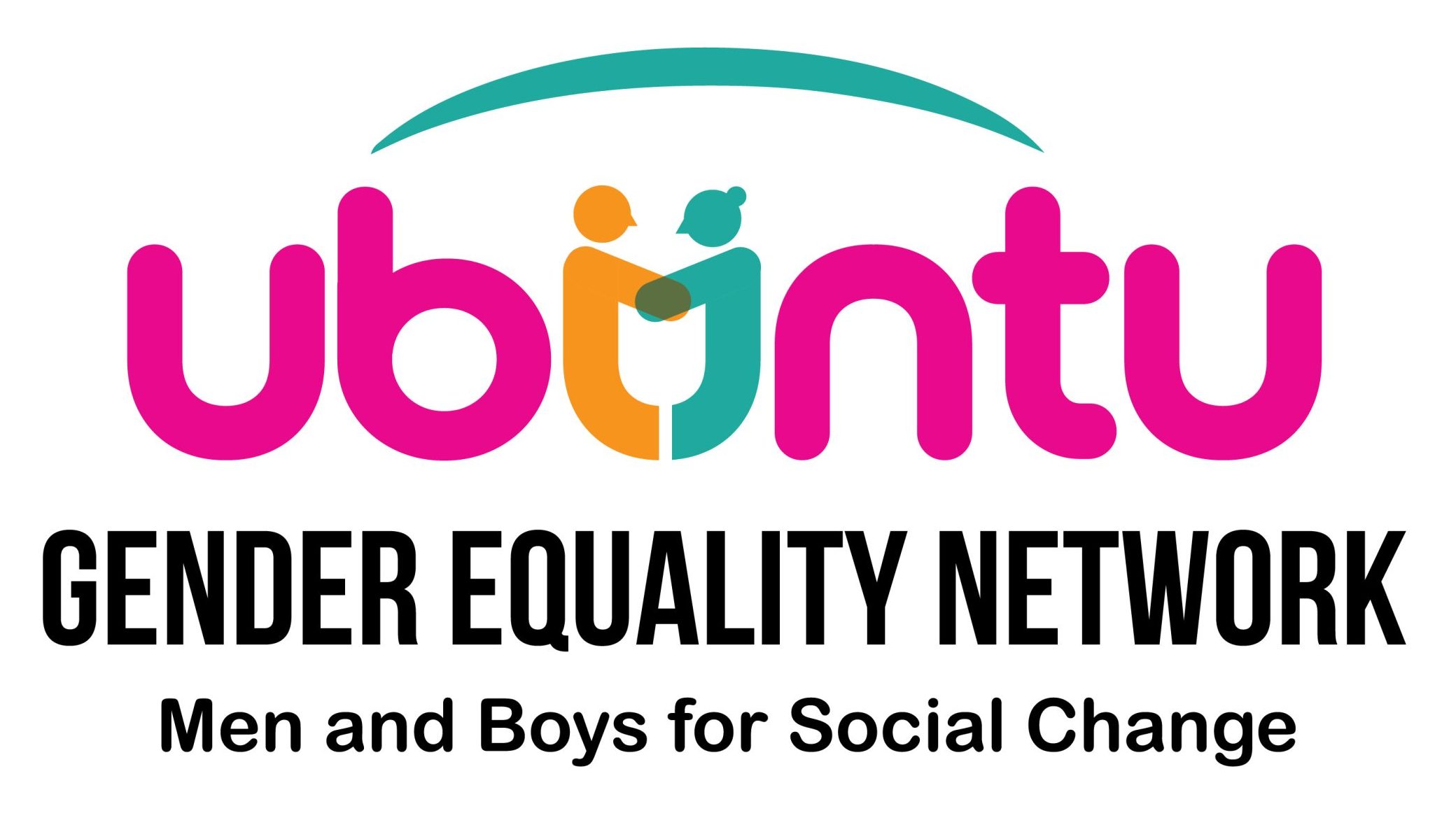Engaging men and boys for women economic empowerment 2023-2024

Introduction: Achieving women’s economic empowerment is not solely a women’s issue; it requires the active involvement and support of men and boys. In many societies, gender inequalities persist in the economic sphere, limiting women’s opportunities for employment, entrepreneurship, and financial independence. The initiative to engage men and boys for women’s economic empowerment in 2023-2024 aims to challenge traditional gender roles and foster a more inclusive approach to economic development, benefiting individuals, families, and communities. Key Objectives: Promoting Gender Equality: By involving men and boys in initiatives aimed at women’s economic empowerment, the program seeks to promote gender equality in access to resources, opportunities, and decision-making power within households, workplaces, and communities. Addressing Harmful Norms and Behaviors: The initiative aims to challenge harmful social norms and behaviors that perpetuate gender-based discrimination and economic inequality, such as unequal pay, limited access to education and financial services, and unequal distribution of unpaid care work. Building Supportive Partnerships: Engaging men and boys as allies in the fight for women’s economic empowerment involves building partnerships between governments, civil society organizations, the private sector, and community leaders to develop and implement gender-sensitive policies and programs. Promoting Positive Masculinities: By promoting positive, non-violent forms of masculinity, the initiative aims to create environments where men and boys support women’s economic aspirations and contribute to building more inclusive and equitable societies. Program Components: Gender Sensitization Workshops: Workshops and training sessions will be conducted for men and boys to raise awareness about the barriers to women’s economic empowerment and to promote gender-sensitive attitudes and behaviors. Entrepreneurship and Financial Literacy Training: Programs will be designed to provide women with the skills and knowledge necessary to start and grow their businesses, including entrepreneurship training, financial literacy education, and access to microfinance and other financial services. Policy Advocacy and Legal Reform: Advocacy efforts will focus on promoting gender-responsive policies and legislation that support women’s economic empowerment, including equal pay laws, maternity and paternity leave policies, and anti-discrimination measures in the workplace. Engaging Men as Allies: Community-based initiatives will be implemented to engage men and boys as allies in promoting women’s economic empowerment, including fatherhood programs, men’s support groups, and campaigns to challenge gender stereotypes. Expected Outcomes: Increased participation of women in the labor force and entrepreneurship. Reduction in gender wage gaps and disparities in access to economic opportunities. Strengthened support systems for women’s economic empowerment, including access to finance, education, and mentorship. Improved relationships between men and women based on mutual respect, equality, and shared decision-making. Enhanced economic outcomes for families and communities, leading to poverty reduction and sustainable development. Conclusion: Engaging men and boys for women’s economic empowerment is not only a matter of social justice but also a strategic imperative for achieving sustainable development and inclusive growth. By working together to challenge gender inequalities and promote positive masculinities, we can create a more equitable and prosperous future for all.
Redefining Masculinities in the Uganda HIV response 2022

Introduction: In the fight against HIV/AIDS, it’s crucial to address not only the medical aspects but also the social, cultural, and behavioral factors that contribute to its spread. In Uganda, like many other countries, traditional notions of masculinity have played a significant role in shaping attitudes and behaviors related to HIV. However, as we progress into the 21st century, there is a growing recognition of the need to redefine masculinity to create healthier, more equitable societies and to strengthen the HIV response. Key Objectives: Challenging Gender Norms: This initiative seeks to challenge harmful gender norms and stereotypes that perpetuate risky behaviors among men, including multiple sexual partners, reluctance to seek healthcare, and stigma towards HIV testing and treatment. Promoting Gender Equity: By promoting a more inclusive and equitable understanding of masculinity, the initiative aims to empower men to take an active role in HIV prevention, care, and support, while also promoting the rights and agency of women and marginalized genders. Improving Access to Services: Redefining masculinity involves creating environments where men feel comfortable accessing HIV testing, treatment, and support services without fear of judgment or stigma, thereby increasing overall HIV testing rates and treatment adherence. Addressing Intersectionality: Recognizing that masculinity intersects with other social identities such as race, class, sexual orientation, and disability, the initiative aims to address the unique challenges faced by diverse communities in the HIV response. Program Components: Community Dialogues: Facilitated discussions will provide safe spaces for men, women, and non-binary individuals to explore and challenge traditional gender norms, sharing personal experiences and perspectives. Training and Capacity Building: Workshops and training sessions will equip healthcare providers, community leaders, and HIV educators with the knowledge and skills necessary to engage men in HIV prevention, testing, and treatment programs. Media Campaigns: Creative and culturally relevant media campaigns will challenge stereotypes of masculinity while promoting positive role models and behaviors, reaching a wide audience through radio, television, social media, and community events. Peer Support Groups: Peer support groups will provide men living with HIV a platform to share experiences, receive emotional support, and learn coping strategies, reducing feelings of isolation and improving overall well-being. Policy Advocacy: Advocacy efforts will work to integrate gender-transformative approaches into national HIV policies and programs, ensuring that masculinity redefinition is institutionalized and sustainable. Expected Outcomes: Increased awareness and acceptance of diverse expressions of masculinity. Improved attitudes towards HIV testing, treatment, and care among men. Reduction in risky behaviors associated with traditional notions of masculinity. Strengthened partnerships between government, civil society, and community-based organizations in the HIV response. Enhanced well-being and quality of life for men living with HIV and their families. Conclusion: Redefining masculinity is not only critical for the HIV response but also for building more inclusive, equitable, and resilient communities. By challenging harmful gender norms and promoting healthier forms of masculinity, Uganda can make significant strides towards ending the HIV epidemic and creating a brighter future for all its citizens.
Inter-Faith training in violence prevention and parenting 2020

Introduction: In a world where differences often lead to divisions, inter-faith initiatives stand out as beacons of hope and unity. The Inter-Faith Training in Violence Prevention and Parenting 2020 serves as a testament to the power of collaboration among diverse religious communities in addressing critical social issues. This comprehensive program aims to equip participants with the knowledge and skills necessary to prevent violence and promote positive parenting practices within their respective communities. Key Objectives: Promoting Understanding and Respect: Through dialogue and shared learning experiences, participants will develop a deeper understanding and respect for various faith traditions, fostering a culture of mutual respect and appreciation. Violence Prevention Strategies: Participants will learn effective strategies for preventing various forms of violence, including domestic violence, community violence, and religiously-motivated violence, among others. Positive Parenting Practices: The training will emphasize the importance of positive parenting in nurturing healthy, resilient, and compassionate individuals, thereby contributing to the prevention of violence at its roots. Building Inter-Faith Networks: Participants will have the opportunity to forge meaningful connections with individuals from different religious backgrounds, creating a network of support and collaboration for future endeavors. Program Components: Educational Workshops: Expert facilitators will conduct workshops on topics such as conflict resolution, communication skills, trauma-informed care, and child development from an inter-faith perspective. Panel Discussions: Panels comprising representatives from various faith communities will discuss their respective teachings on non-violence, peace, and compassionate parenting, highlighting commonalities and differences. Role-Playing Exercises: Interactive role-playing exercises will enable participants to practice conflict resolution techniques and empathetic communication in simulated scenarios. Case Studies and Best Practices: Real-life case studies and examples of successful violence prevention and parenting initiatives within diverse religious communities will be shared and analyzed. Community Engagement Projects: Participants will collaborate on community engagement projects aimed at promoting inter-faith understanding, addressing social issues, and supporting vulnerable populations. Expected Outcomes: Increased awareness and understanding of the role of faith communities in violence prevention and parenting. Enhanced skills in conflict resolution, communication, and positive parenting practices. Strengthened inter-faith networks and partnerships for ongoing collaboration. Development of community-driven initiatives to promote peace, tolerance, and social justice. Empowerment of participants to become advocates for non-violence and compassionate parenting within their communities. Conclusion: The Inter-Faith Training in Violence Prevention and Parenting 2020 represents a significant step towards building bridges of understanding and cooperation among diverse religious traditions. By coming together to address common challenges, participants have the opportunity to create positive change and foster a more harmonious and compassionate society for generations to come.

